NHL Old Age Comebacks
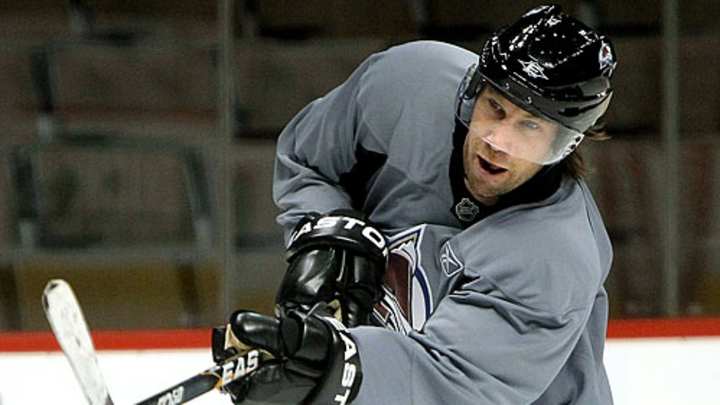
NHL Old Age Comebacks
Peter Forsberg

The former Hart Trophy-winner, a star on Colorado's two Stanley Cup championship teams, is attempting a comeback with the Avalanche at age 37. Forsberg last played in the NHL during the 2007-08 season, scoring a goal and 13 assists in nine regular season games for the Avs, and five points in seven playoff matches, before returning home to Sweden when a chronic foot problem forced him to contemplate retirement. Here are 11 more notable late-career returns to the league, and how those players fared.
Gordie Howe
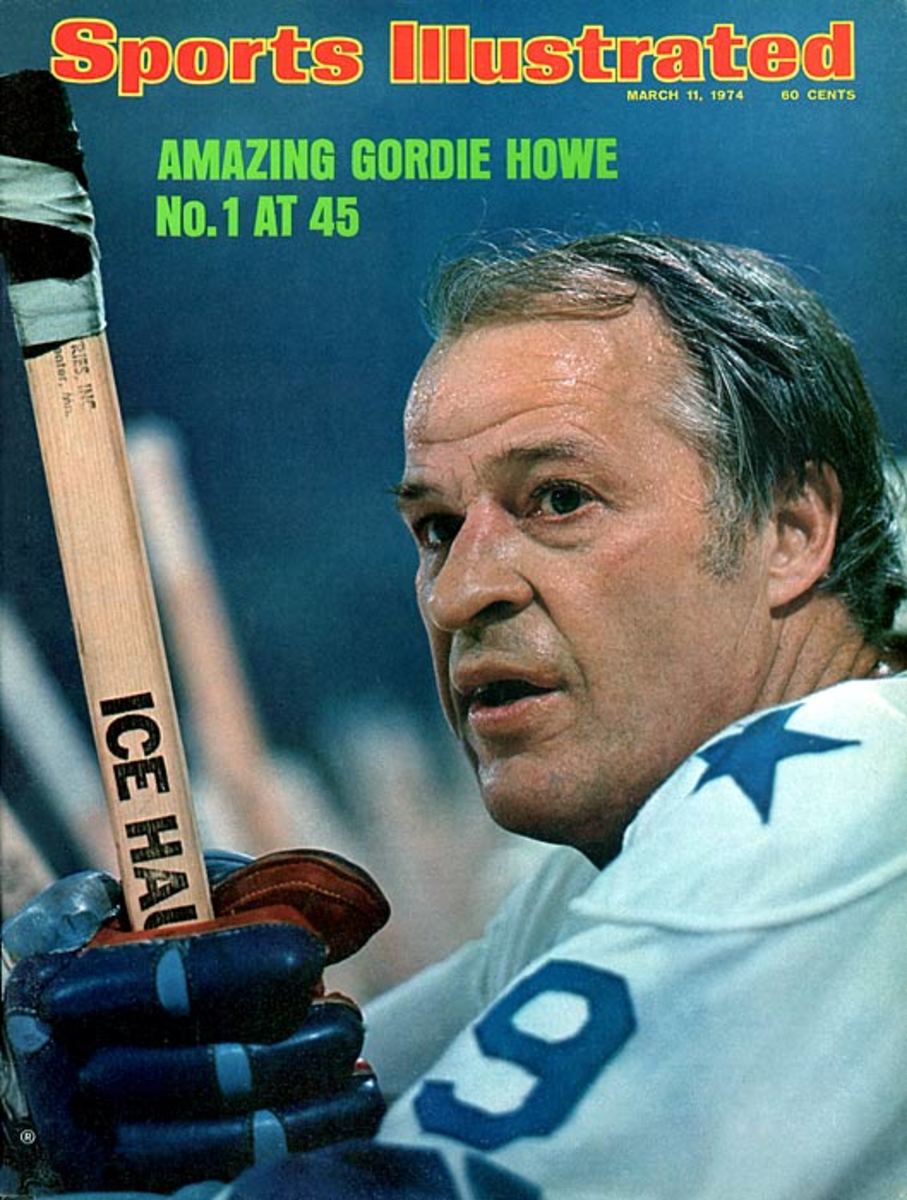
A chronic wrist problem forced Mr. Hockey to retire in 1971 after an illustrious 25 years with the Detroit Red Wings, but he returned two years later to play with his sons Mark and Marty for Houston Aeros of the newly formed WHA. The trio won two league titles before moving on to Hartford. Gordie was 51 when the Whalers were absorbed by the NHL in 1979 and he scored 15 goals in 80 games while helping them make the playoffs. After the season, he retired but took the ice again in 1997 for one shift with the IHL's Detroit Vipers... at age 69.
Chris Chelios
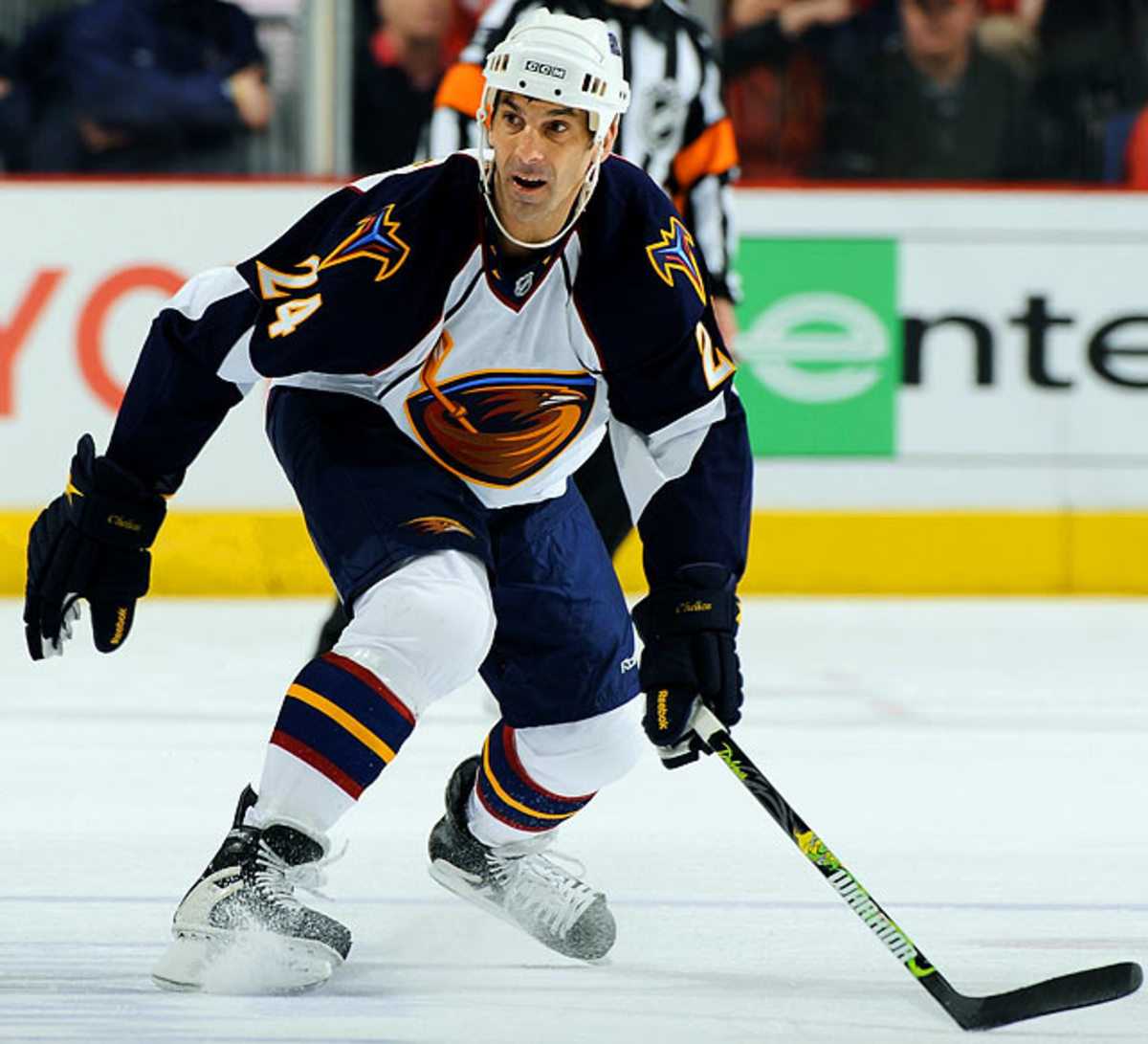
The durable defenseman was 47 when he accepted a contract with the Chicago Wolves of the AHL in 2009 in hope of later extending his career in the NHL, where he'd spent 25 seasons and won three Norris trophies. In March 2010, he got his wish when the Atlanta Thrashers summoned him. He played in seven games for them without recording a point, and then retired.
Claude Lemieux
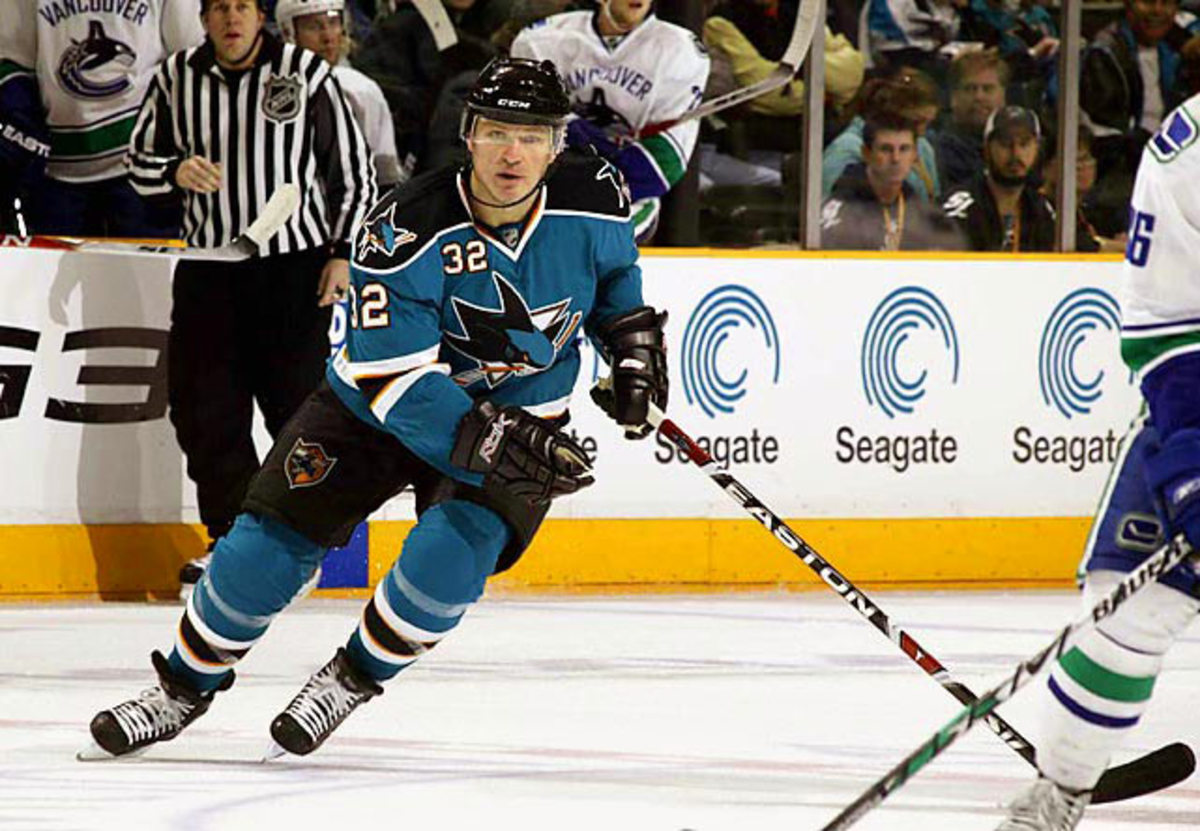
One of the NHL's most infamous pests, Lemieux enjoyed a brief comeback with the San Jose Sharks in 2009 at age 43 -- nearly six years after his retirement. A four-time Stanley Cup champion and 1995 playoff MVP who played for five NHL teams over the course of 20 seasons, Lemieux spent eight weeks in the AHL before taking the ice with the Sharks. He played in 18 games, and scored one point, before retiring again after the season.
Mario Lemieux
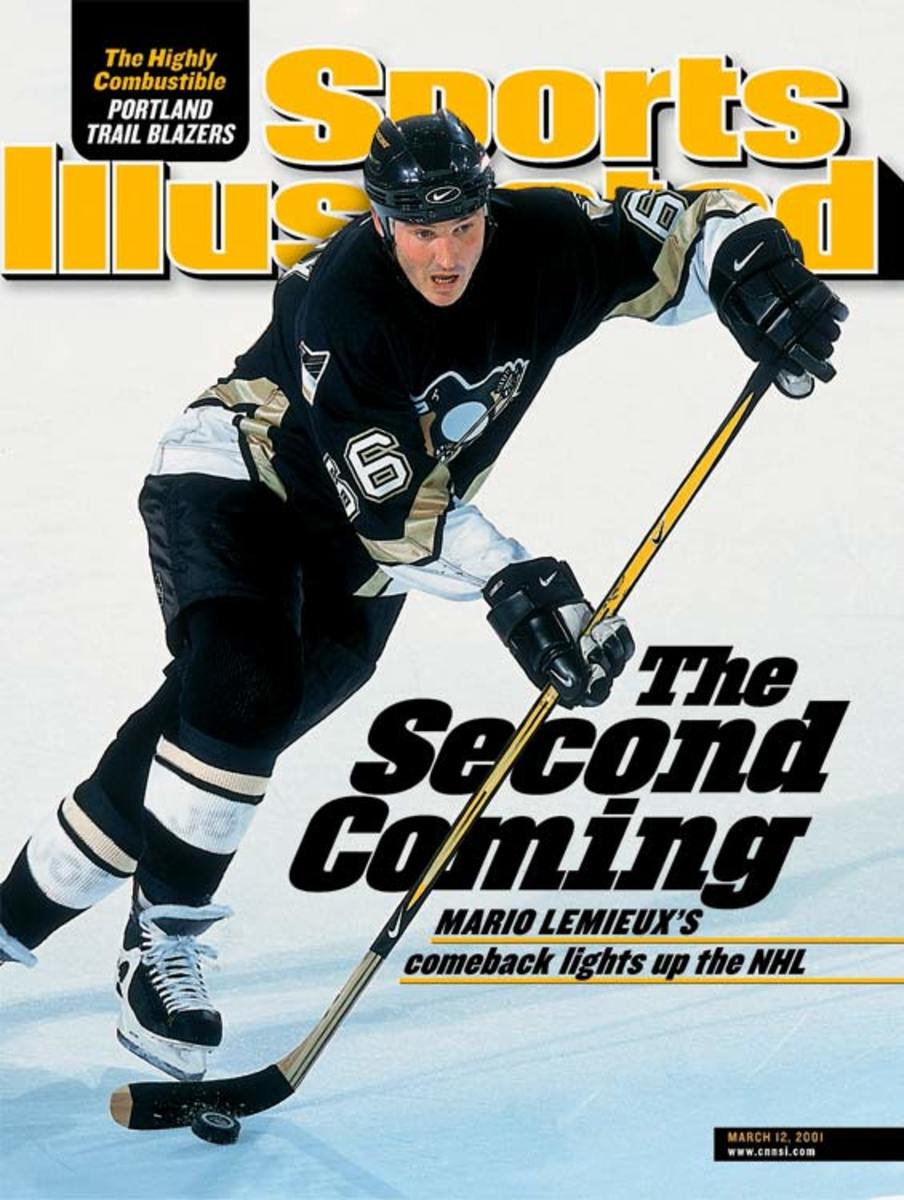
Back problems and a battle with Hodgkin's disease forced him to retire in 1997, and he took a position in the Penguins' front office for three seasons before returning to the ice in 2000 at nearly 35 years old. By then, Lemieux was also the primary owner of the Penguins, and he continued to play for parts five seasons (his best was a 28-goal, 91-point campaign in 2002-03) until his final retirement in '06.
Theo Fleury
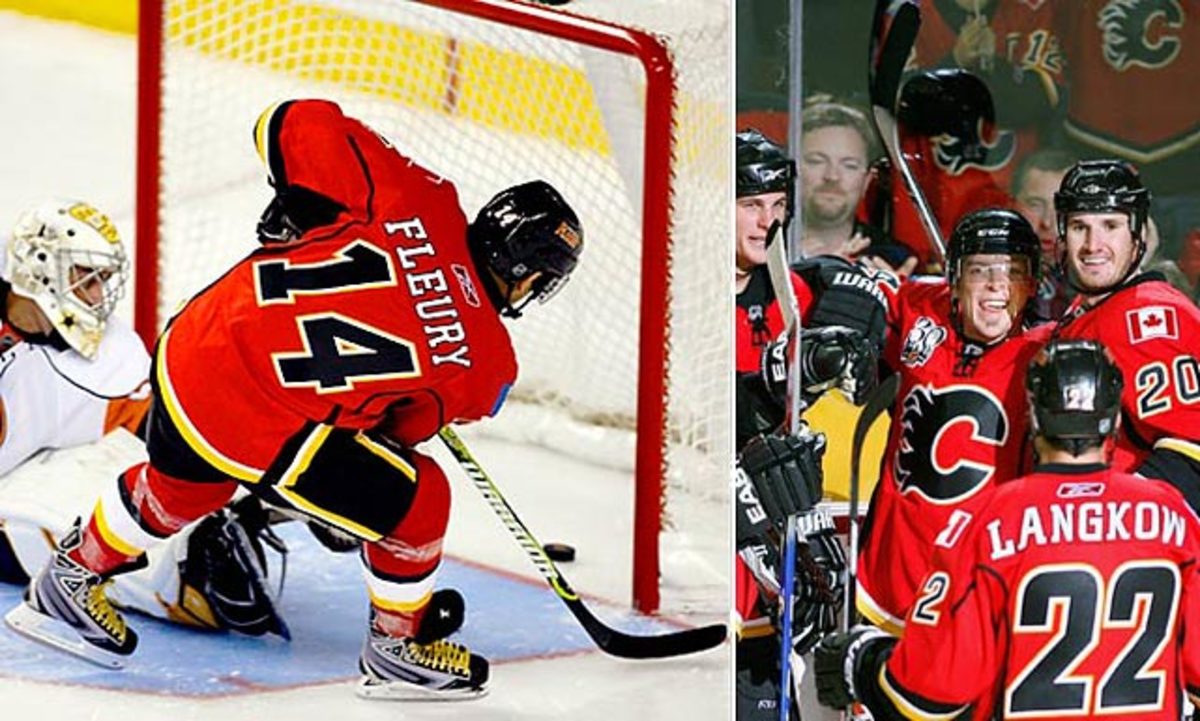
The pint-sized pot-stirrer, who scored 455 goals and 1,088 points in 15 NHL seasons, had his career derailed by substance abuse in 2003. Six years later, after playing in Ireland for the Belfast Giants and then the Horse Lake Thunder of Alberta's senior North Peace Hockey League, he attempted a training camp comeback at 41 with one of his former teams, the Calgary Flames. Fleury scored the shootout-winning goal in his first preseason game and added a goal and assist in his second outing, but was released by the Flames even though he offered to play for their AHL team in Abbotsford.
Dominik Hasek
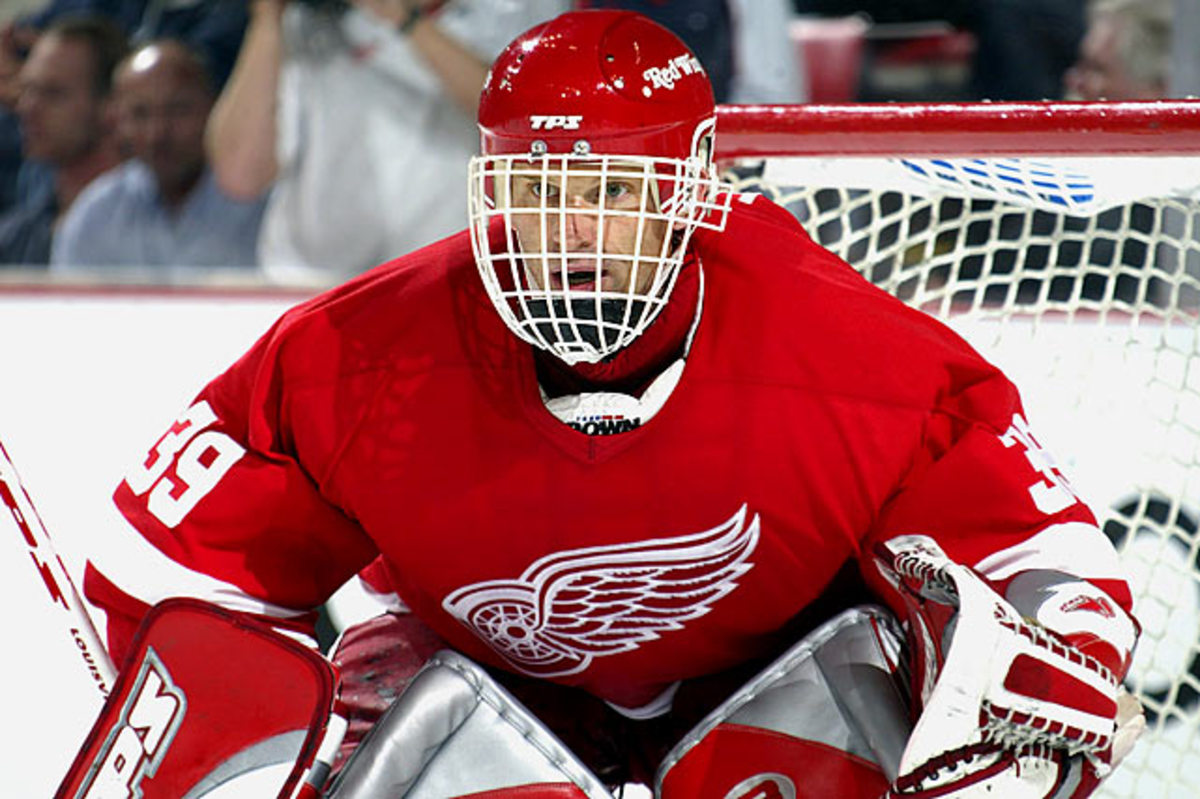
After winning the first Stanley Cup of his storied, 12-year NHL career, the six-time Vezina Trophy-winner retired and sat out the 2002-03 season. He returned to the Red Wings in 2003-04 at 38, but his season was limited to only 14 games by a groin injury. After the 2004-05 lockout, he signed with the Ottawa Senators, ultimately going back to Detroit for another Stanley Cup season in 2006-07, although he was supplanted by Chris Osgood as the Wings' starting goalie in the playoffs.
Barry Melrose
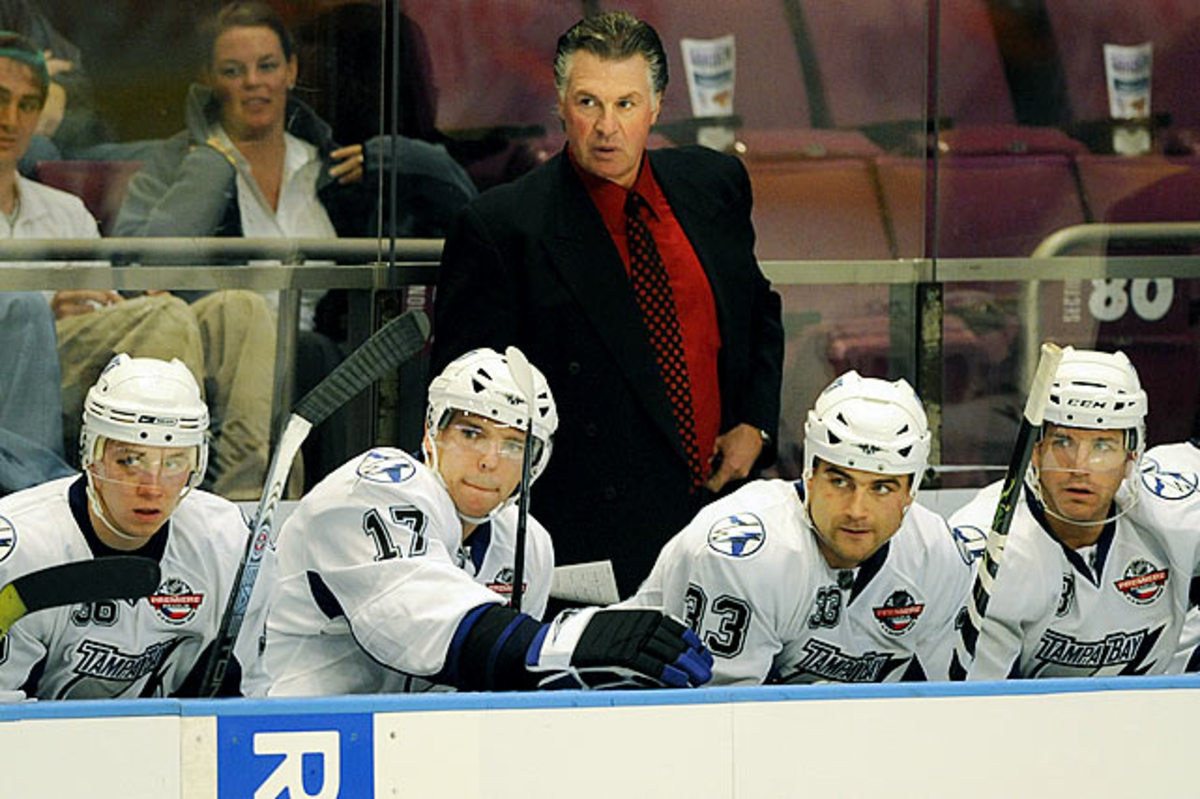
After 12 years as an NHL commentator for ESPN, the former coach of the Los Angeles Kings (1992-95) was hired as bench boss of the Tampa Bay Lightning in June 2008 by new owners Oren Koules and Len Barrie. Alas, his tenure lasted a tumultuous 16 games before he was handed a pink slip when his team started with a 5-7-4 record as heralded rookie Steven Stamkos struggled. (Melrose thought Stamkos wasn't ready for the NHL.)
Jacques Plante
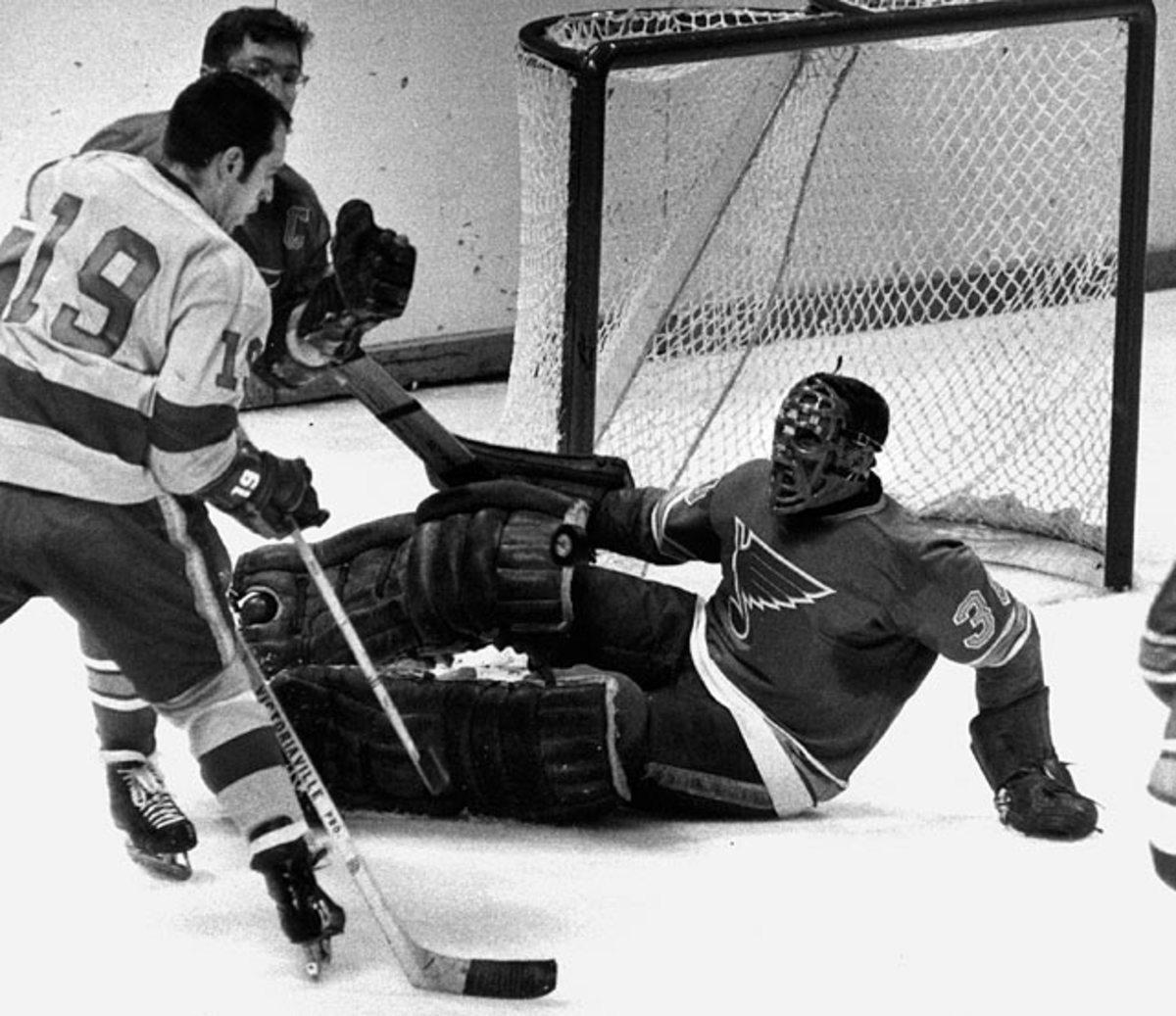
The man who popularized the use of facemasks and won six Vezina trophies with Montreal retired in 1965 after two seasons with the New York Rangers. He returned at 39 in 1968 to share netminding duties with fellow Hall of Famer Glenn Hall on the expansion St. Louis Blues. Plante played in two Stanley Cup finals with St. Louis and shared the Vezina with Hall in 1969. With an obvious second wind, Plante continued to man the net for Toronto, Boston and the WHA's Quebec Nordiques and Edmonton Oilers until 1975.
Ted Lindsay
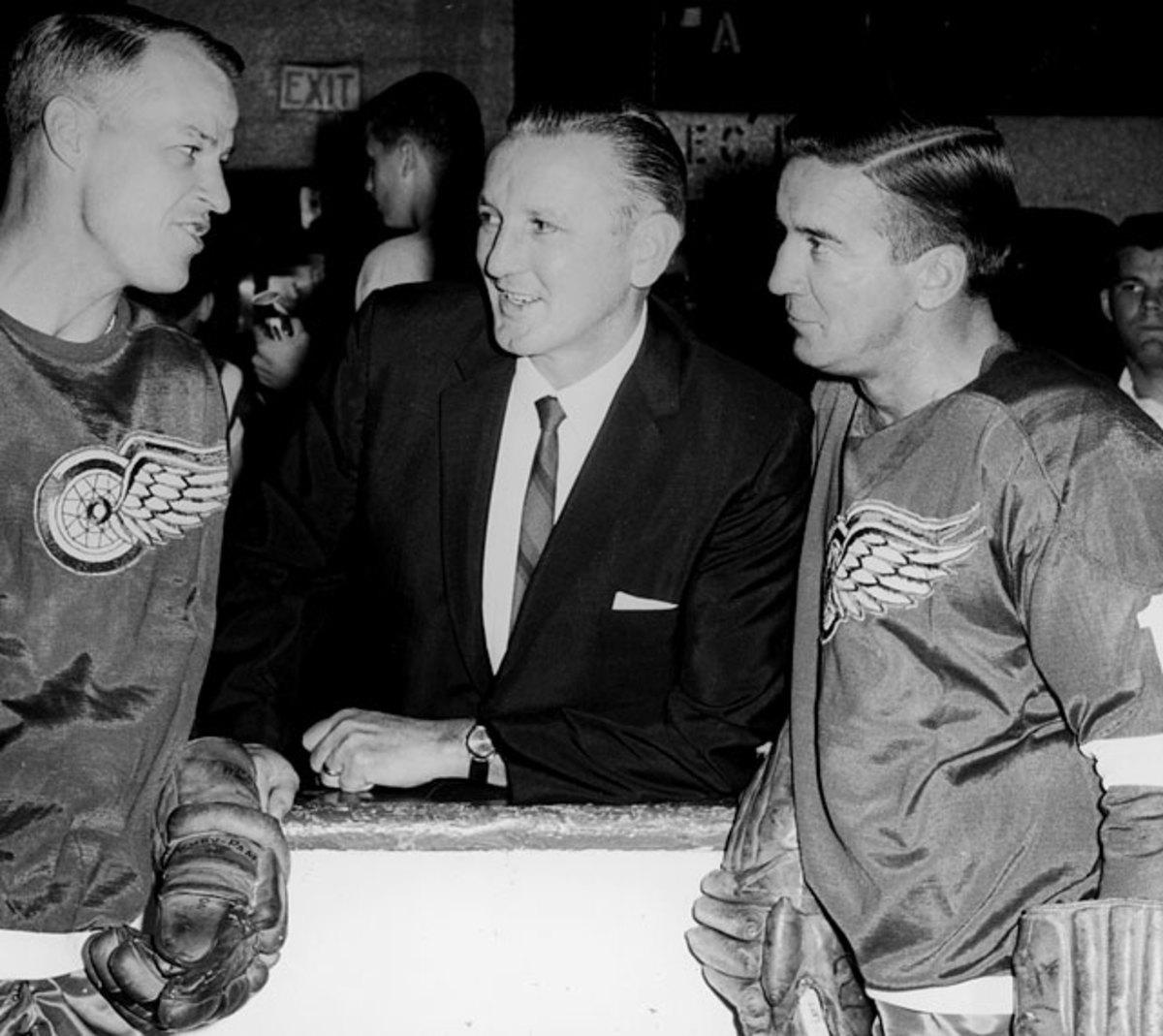
"Terrible Ted" (right), the hardnosed left wing on Detroit's famed Production Line with Gordie Howe and Sid Abel (center), retired in 1960 at 35 after 13 seasons with the Red Wings and three with the Chicago Blackhawks. In 1964, Abel, who had become Detroit's coach and GM, asked Lindsay to return. He scored 14 goals and 28 points as the Red Wings finished first overall, but retired again after the season.
Bernie Geoffrion
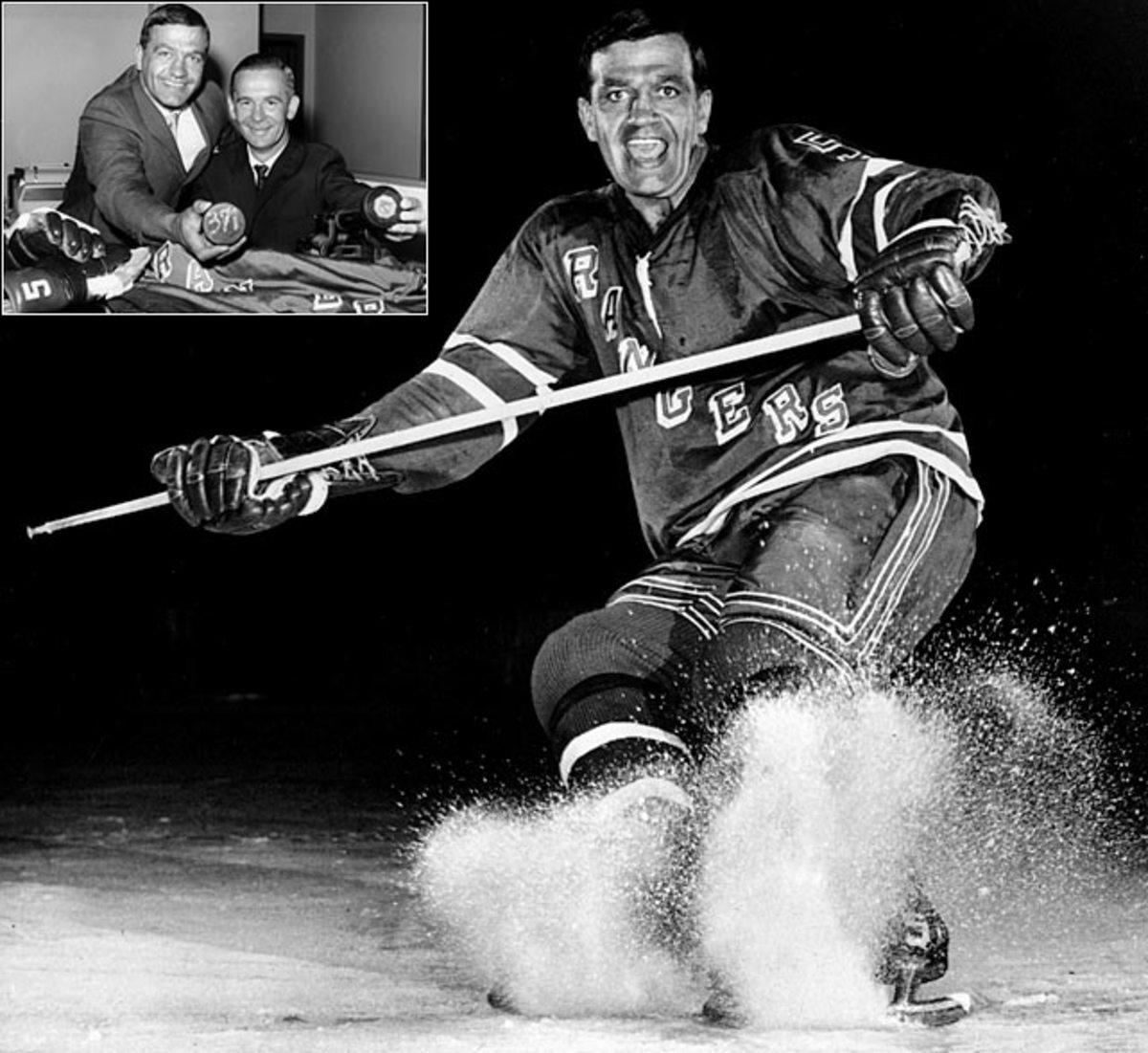
The great "Boom Boom" who rose to fame with the Canadiens in the 1950s and early 60s, hung up his skates in 1964 and coached Quebec's AHL team before deciding to return to the NHL with the Rangers in 1966, at 35. He played two seasons on Broadway, producing 42 and 21 points. Retiring as a player again, the Hall of Famer became the first coach of the expansion Atlanta Flames in 1972 and held the job for parts of three seasons.
Max and Doug Bentley
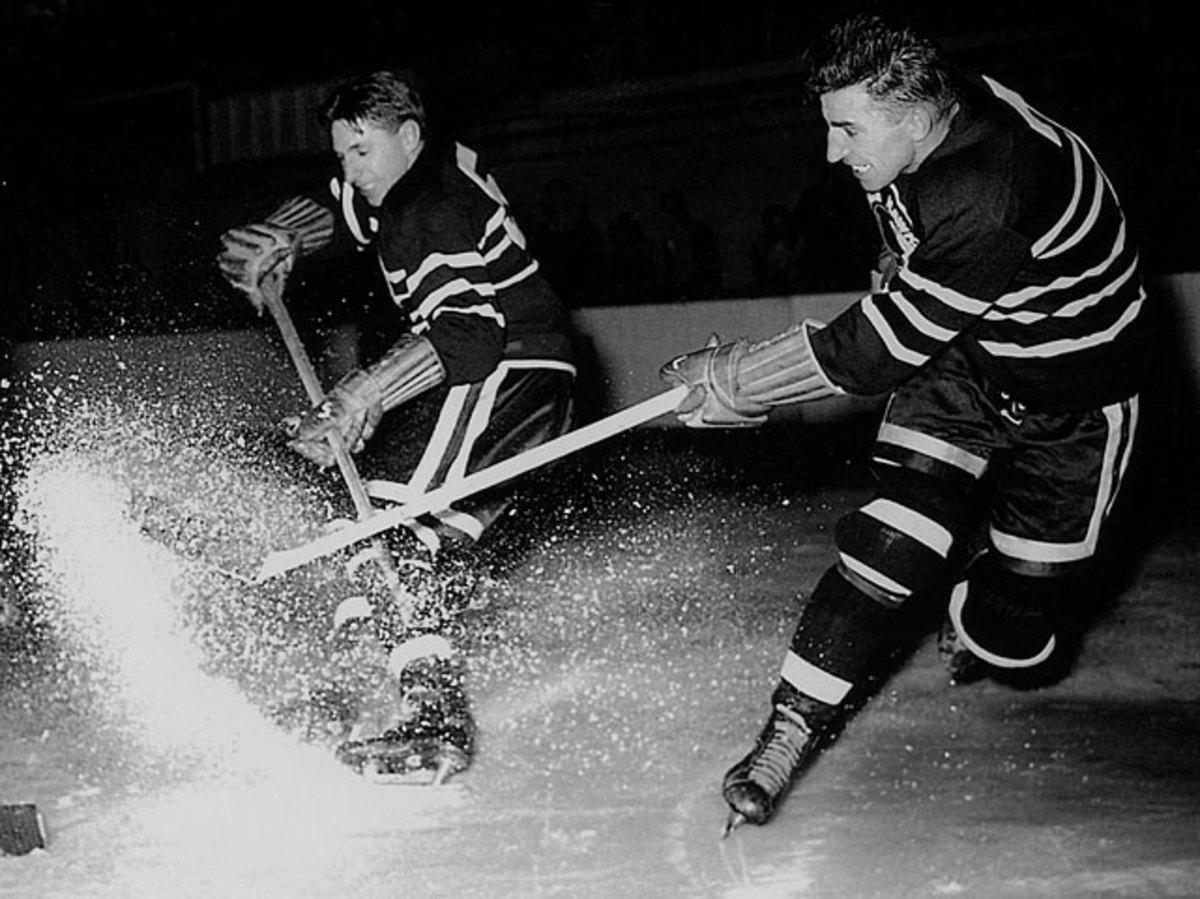
The Hall of Fame brothers, who starred for the Chicago Blackhawks for five seasons, were separated by Max's trade to Toronto in 1947. When Max retired at age 33 due to back problems after the 1952-53 season, the Maple Leafs sold his rights to the Rangers, for whom Doug, now 37, was playing after two seasons with Saskatoon of the WHL. They skated together in New York during the 1953-54 season (Max: 14 goals, 32 points; Doug: two and 10), then concluded their careers in the WHL.
